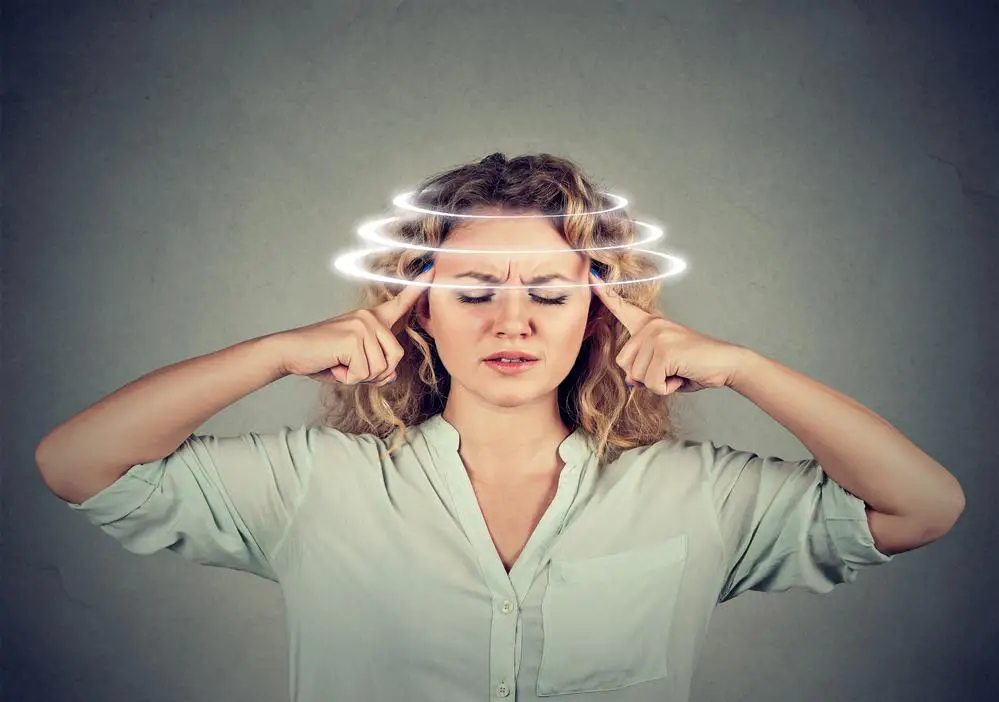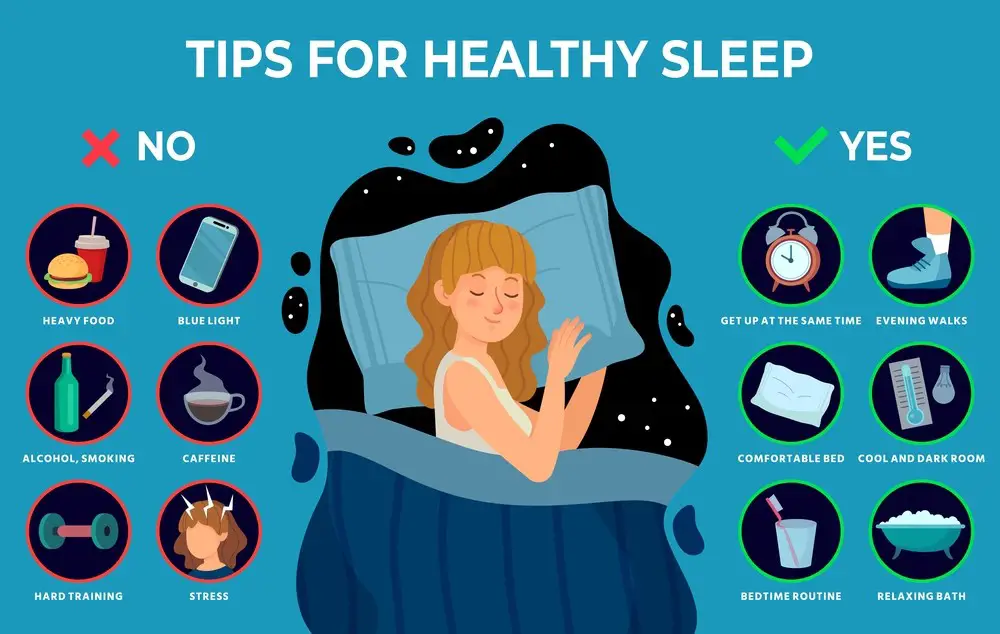As a BetterHelp affiliate, we receive compensation from BetterHelp if you purchase products or services through the links provided
Many people experience a sense of lightheadedness after a night of poor sleep. This feeling of being light-headed can make maintaining balance and focus difficult, often described as a sensation of dizziness or being on the verge of fainting. It’s more than just an inconvenience; it can significantly impact your day-to-day activities, affecting your productivity and overall well-being.
The reasons behind this lightheaded feeling are multifaceted. A lack of sleep can disrupt the delicate equilibrium within your body, leading to fatigue that affects your brain function and physical coordination. Additionally, ongoing sleep deficiency may contribute to various medical conditions that can cause or exacerbate sensations of dizziness and imbalance.
Key Takeaways
- Inadequate sleep can lead to feelings of lightheadedness, impacting balance and attention.
- Fatigue from sleep deprivation affects both mental acuity and physical coordination.
- Lack of sleep may increase the risk of health conditions contributing to lightheaded sensations.
Understanding Lightheadedness
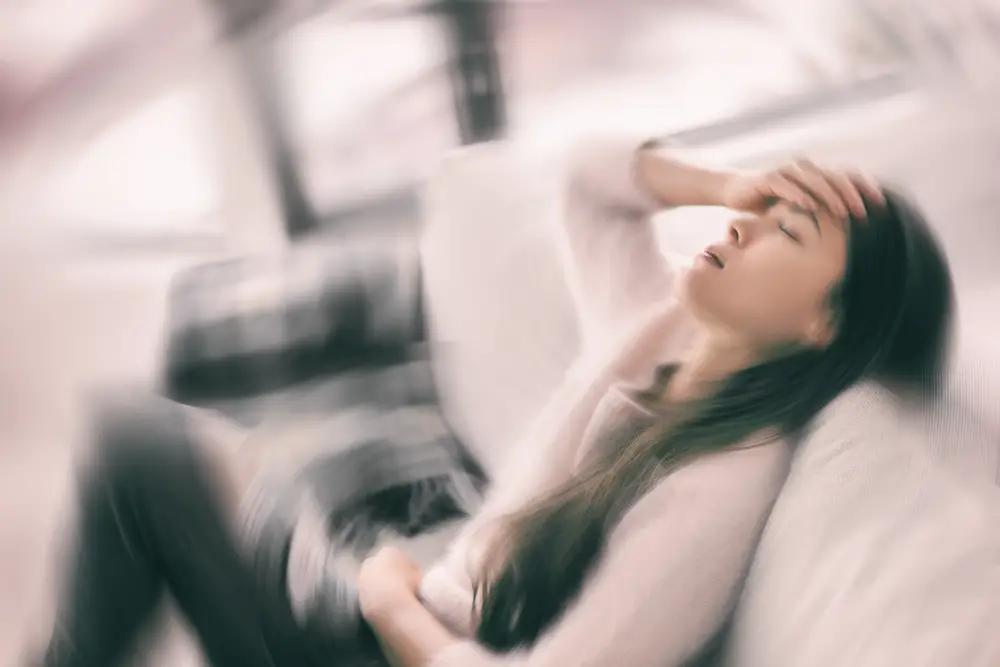 Feeling light-headed can be unsettling and sometimes a sign that your body needs attention. It’s essential to recognize the symptoms and know when to get help.
Feeling light-headed can be unsettling and sometimes a sign that your body needs attention. It’s essential to recognize the symptoms and know when to get help.
Symptoms and Sensations
- Dizziness: This can feel like you’re spinning or the room is spinning around you.
- Faintness: A feeling that you might pass out or lose consciousness.
- Nausea: An uneasy stomach that may or may not come with the urge to vomit.
- Vomiting: The act of throwing up, which can exacerbate feeling faint and dizzy.
- Confusion: This includes difficulty focusing, thinking, or understanding your surroundings.
- Chest Pain: If accompanied by lightheadedness, it’s a particularly concerning symptom.
- Difficulty Breathing: Shortness of breath or feeling like you cannot catch your breath.
When to Seek Medical Care
It’s crucial to pay attention to your body and seek medical care if you experience:
- Severe, sudden dizziness without a clear cause.
- Dizziness accompanied by chest pain or shortness of breath.
- Confusion or trouble speaking.
Key Takeaway: If lightheadedness is coupled with other severe symptoms like chest pain, difficulty breathing, or confusion, it’s time to seek immediate medical care. Your safety comes first.
The Sleep and Lightheadedness Connection
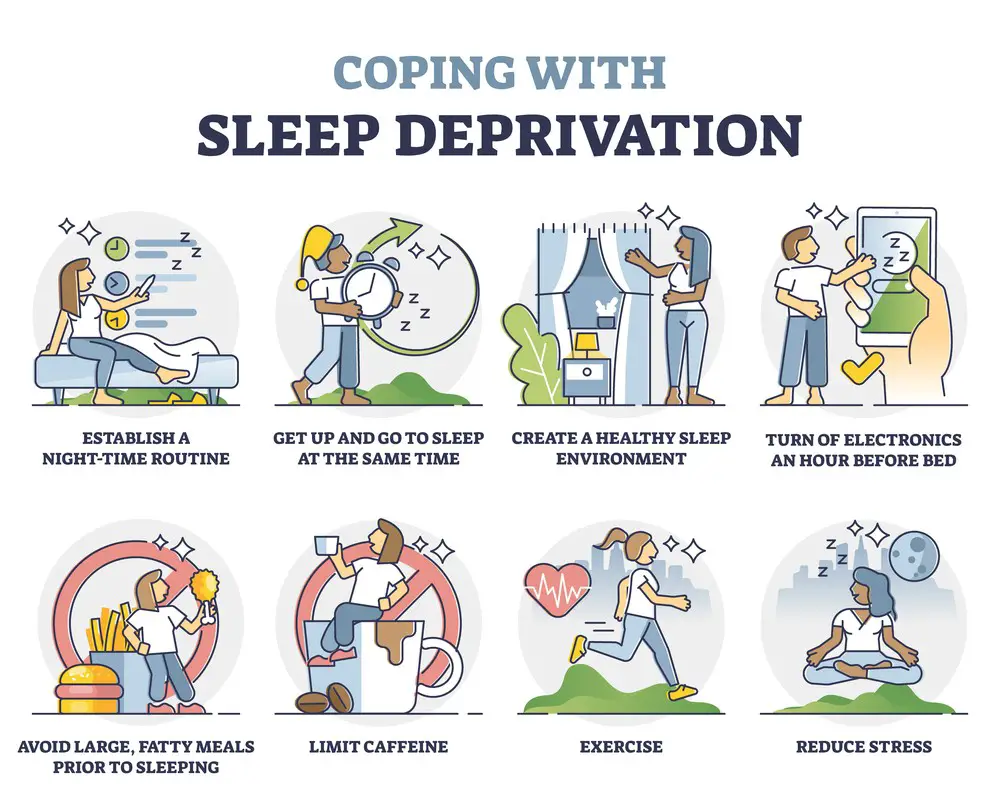 Understanding how sleep deprivation affects your balance and well-being is crucial for maintaining a healthy lifestyle.
Understanding how sleep deprivation affects your balance and well-being is crucial for maintaining a healthy lifestyle.
Effects of Sleep Deprivation
Lack of sleep can leave you feeling dizzy and unsteady. When you cut short your rest, your body misses out on vital functions, with immediate effects including:
- Dizziness and imbalance: These may result from a drop in blood pressure caused by fatigue.
- Cognitive impairments: Fatigue can slow your reaction times and weaken your decision-making skills.
- Emotional stress: With inadequate sleep, you’re more likely to feel overwhelmed, increasing stress levels.
Key takeaway: If you’re experiencing lightheadedness, it could be a sign that you need more sleep to help maintain both your physical balance and mental clarity.
Regulating Sleep for Better Balance
To minimize dizziness and improve overall balance, try adopting the following strategies to regulate your sleep patterns:
- Establish a routine: Go to bed and wake up at a set schedule every day to sync your internal clock.
- Create a restful environment: Keep your bedroom dark, quiet, and calm to promote better rest.
- Minimize stress before bed: Engage in relaxing activities like reading or a warm bath to help your mind and body wind down.
Key takeaway: By prioritizing good sleep habits and creating a nightly routine, you can reduce fatigue-related dizziness and maintain a steadier balance.
Causes of Lightheadedness
Lightheadedness can sneak up on you, leaving you feeling faint and unsteady. Below, you’ll discover why this might happen and what conditions make you more prone to experiencing it.
Common Triggers and Risk Factors
Certain triggers can make you feel light on your feet, not in a good way. Here’s a quick checklist of typical culprits:
- Dehydration: Not enough fluids can lead to a drop in blood pressure and, in turn, lightheadedness.
- Low Blood Sugar: Skipped meals or a long gap between them can cause your blood sugar to dip.
- Alcohol: Overconsumption affects your senses and balance, leading to a spinning sensation.
- Stress: When stressed, your body’s response can unsettle your equilibrium.
- Orthostatic Hypotension: This fancy term means your blood pressure falls when you stand up too quickly, leaving your head spinning.
Remember, you’re more at risk if you often skip meals, neglect hydration, or go heavy on spirits.
Health Conditions and Lightheadedness
Your body might be signaling something more with lightheadedness. Below are a few health issues that have this troubling symptom:
- Inner Ear Problem: Your ear is your balance center; issues here can make you feel off-kilter.
- Anemia: Low iron levels mean less oxygen in your blood, leading to potential dizziness.
- Diabetes: Fluctuations in blood sugar levels are a known cause of lightheaded spells.
- Infection: Some infections, mainly if they cause fever, can disrupt your body’s balance.
- Depression: Yes, mental health impacts physical well-being, including causing lightheadedness.
Knowing the root can be the first step in regaining your steady footing. If you frequently fish for balance, it might be time to chat with your doctor.
Key Takeaway: Whether skipping breakfast, forgetting to drink water, or having a deeper health issue, understanding what’s knocking you off balance is crucial. Stay hydrated, eat regular meals, and consult a professional if the problem persists.
Medical Conditions Related to Lightheadedness
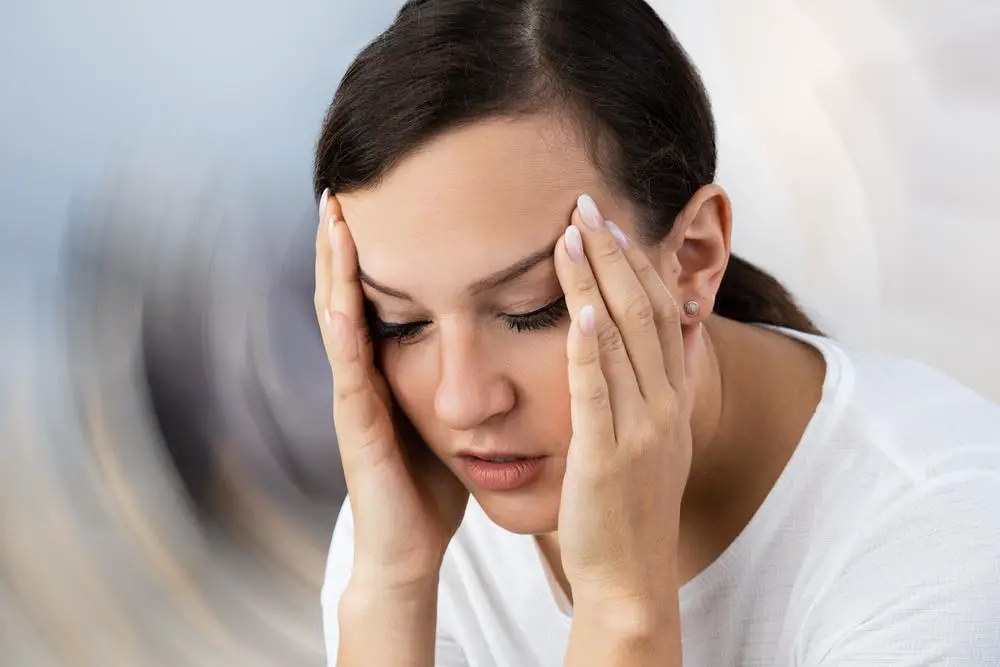 Various medical conditions can contribute to feelings of lightheadedness. Understanding the relationship between these conditions and your symptoms is essential to finding the right approach to managing or alleviating lightheaded sensations.
Various medical conditions can contribute to feelings of lightheadedness. Understanding the relationship between these conditions and your symptoms is essential to finding the right approach to managing or alleviating lightheaded sensations.
Inner Ear Issues and Vertigo
Your inner ear plays a pivotal role in maintaining balance. Disorders here can cause vertigo – a sensation that either you or your surroundings are spinning:
- Benign Paroxysmal Positional Vertigo (BPPV): This is when tiny calcium particles clump up in the canals of the inner ear, leading to brief episodes of dizziness.
- Vestibular Neuritis: An inflammation of the vestibular nerve, typically following a viral infection, which can result in severe, sudden vertigo.
Key Takeaway: If you often feel like the room is spinning, it might be time to check your inner ear.
Cardiovascular Disorders
The heart’s health is crucial for preventing lightheadedness, as it’s responsible for pumping blood and oxygen to your brain:
- Heart Attack: A decrease in blood flow to the heart can lead to a heart attack, causing symptoms like chest pain and lightheadedness.
- Cardiovascular Changes: Low blood pressure (hypotension) and other cardiovascular issues can cause insufficient blood flow to the brain, leading to lightheadedness.
Key Takeaway: Regular check-ups for blood pressure and heart health can be a lifesaver, literally.
Neurological Causes
The brain itself and neurological conditions play a significant role in balance and perception:
- Stroke: A stroke, a disruption of blood supply to the brain, can lead to lightheadedness, among other symptoms.
- Parkinson’s Disease and Multiple Sclerosis (MS): These neurological conditions can affect movement and balance, possibly leading to feelings of unsteadiness or lightheadedness.
Key Takeaway: If dizziness is accompanied by other neurological symptoms, such as slurred speech or difficulty walking, seek medical attention promptly.
Examining Symptoms
Feeling out of sorts is common when you’re short on sleep. Here’s a look at how to pinpoint these unsettling symptoms and what they could indicate.
Identifying Lightheadedness and Related Issues
You may notice a sensation of light-headedness if you’re lacking sleep. It feels as if you’re about to faint or ‘float,’ which can be somewhat problematic. This is a crucial symptom to pay attention to, as it may be accompanied by:
- Unsteadiness: A feeling akin to walking on a rocking boat.
- Weakness: Muscles may feel less powerful or responsive.
- Headache: Tension or pain in your head, which can range from mild to severe.
- Confusion: Difficulty in thinking or decision-making.
Here’s what you may experience:
- Dizziness, particularly when standing up quickly.
- Difficulty concentrating, similar to the feeling of being ‘in a fog’.
Differential Diagnosis
To better understand these symptoms, consider the following possibilities:
- Migraine: Severe headaches characterized by throbbing pain, often with nausea or light sensitivity.
- Vertigo: A specific type of dizziness where you or your surroundings seem to spin.
It’s crucial to differentiate whether symptoms like headache or dizziness are due to:
- Lack of sleep itself.
- A sleep-related condition.
- Other health issues.
Not all headaches are migraines, and not all feelings of unbalance are vertigo. Getting to the bottom of your symptoms requires careful consideration.
Key Takeaway: Unpack your experiences to get a clear picture. If headaches or dizziness are recurrent, it’s wise to consult a healthcare professional.
Home Remedies and Management
 Specific home strategies can be beneficial when feeling light-headed due to a lack of sleep. This section offers tips on lifestyle tweaks and natural treatments to help you regain your balance and alertness.
Specific home strategies can be beneficial when feeling light-headed due to a lack of sleep. This section offers tips on lifestyle tweaks and natural treatments to help you regain your balance and alertness.
Lifestyle Adjustments
Prioritize Sleep: It’s essential to establish a consistent sleep schedule. Aim for 7-9 hours of quality sleep each night to help maintain your body’s natural balance.
- Set a Regular Bedtime: Your body loves routine. Try to go to bed at the same time each night.
- Create a Restful Environment: Keep your bedroom dark, calm, and quiet.
Stay Hydrated: Dehydration can exacerbate feelings of lightheadedness. Make sure to drink plenty of fluids throughout the day.
- Keep a Water Bottle Handy: Having water at arm’s reach will remind you to take sips regularly.
Monitor Your Diet: A well-balanced diet can prevent blood sugar dips that may lead to lightheadedness.
- Incorporate Complex Carbs and Proteins: Opt for whole grains, nuts, and lean meats.
- Avoid Sugary Snacks: They can cause a rapid spike and drop blood sugar levels.
Key Takeaway: Establishing a regular sleep routine and maintaining balanced hydration and nutrition are crucial steps in managing light-headedness caused by sleep deprivation.
Natural Treatments
Mindfulness and Relaxation Techniques: Activities like yoga or meditation can reduce stress, improving sleep quality and overall sense of equilibrium.
- Practice Deep Breathing: This can help calm your nervous system and enhance your focus.
- Try Progressive Muscle Relaxation: Tense and progressively relax muscles from your toes to your head before bed.
Herbal Remedies:
- Chamomile Tea: Known for its sleep-inducing properties, it can be a part of your bedtime routine.
- Ginger: This root may help balance and nausea often associated with lightheadedness.
Key Takeaway: Integrating mindfulness and selected herbal remedies can complement lifestyle adjustments to manage light-headedness.
Medical Interventions
Medical interventions can be a critical step towards improvement when you’re grappling with lightheadedness due to lack of sleep.
Medication Usage
Medications can be quite effective in addressing the underlying causes of your symptoms. For instance, if anxiety or depression is contributing to your sleep issues, antidepressants might be prescribed to help stabilize your mood and improve sleep patterns. Following a doctor’s guidance when using these medications is essential, as they must be tailored to your needs.
- Blood Pressure Medication: Sometimes, your lightheadedness could be linked to low or high blood pressure. In this case, medication to regulate blood pressure may be recommended. Adherence to the prescribed dosage is key.
- Anti-seizure Drugs: These are occasionally used off-label for their calming effects on the nervous system, which might aid with sleep.
- Diuretics: If fluid retention is an issue, diuretics may be used, but beware of potential side effects like electrolyte imbalances that can exacerbate lightheaded feelings.
Key takeaway: Medications should be used as directed by a healthcare professional, considering the unique aspects of your condition.
Advanced Treatments and Therapies
Your journey to better sleep may lead you to more advanced treatments if conventional medications don’t do the trick.
- Cognitive Behavioral Therapy for Insomnia (CBTi): This specialized treatment addresses the thoughts and behaviors that disrupt sleep, fostering healthy sleep habits.
- Biofeedback: With this technique, you’ll learn to control certain bodily functions, such as your heart rate, which can help manage stress and improve sleep.
- Sleep Restriction Therapy: Under medical care, you might try sleep restriction therapy, limiting your time in bed to increase sleep efficiency.
Remember, advanced treatments often require patience and consistency and should be pursued under the guidance of a sleep specialist or other healthcare provider.
Key takeaway: Explore advanced treatments with professional guidance to tackle insomnia-related lightheadedness effectively.
Monitoring and Tests
When you’re feeling lightheaded due to a lack of sleep, several tests can help pinpoint the cause. Your doctor will guide you through routine checks and may suggest more specific assessments to rule out underlying conditions.
Routine Examinations
A thorough physical examination is essential to get to the heart of your light-headedness. Your doctor will:
- Review your medical history, including any instances of similar symptoms.
- Check vital signs like blood pressure and heart rate to detect anomalies that could explain your condition.
Your doctor’s sharp eyes give them a heads-up on what’s up with your health beyond the fatigue. They’ll also ask about your sleep habits to understand the bigger picture—how your zzz’s or lack thereof might mess with your head.
Specialized Testing
Now, if basic checks don’t bring to light what’s wrong, your doctor might call in the big guns:
- Blood tests are a telltale. They can reveal things like anemia or thyroid issues that might be playing hide and seek with your well-being.
- An electrocardiogram (EKG/ECG) lays your heart on the line, screening for irregular rhythms that can make you dizzy.
- An echocardiogram dives even deeper, using ultrasound waves to show your heart in action. It’s like a live show, revealing how well your heart performs its pump-it-up dance routine.
Remember, your doc’s got your back (and your front, and your insides, too). They’ll walk you through these tests so you’re not stepping into the unknown alone.
Key Takeaway: Light-headedness can be diagnosed through regular check-ups and specific tests. Don’t ignore it!
Psychological Factors
When talking about feeling lightheaded due to a lack of sleep, it’s essential not to overlook the psychological factors at play. Your mental health can significantly affect your sleep patterns and, in turn, cause physical symptoms like lightheadedness.
Anxiety and Stress Influence
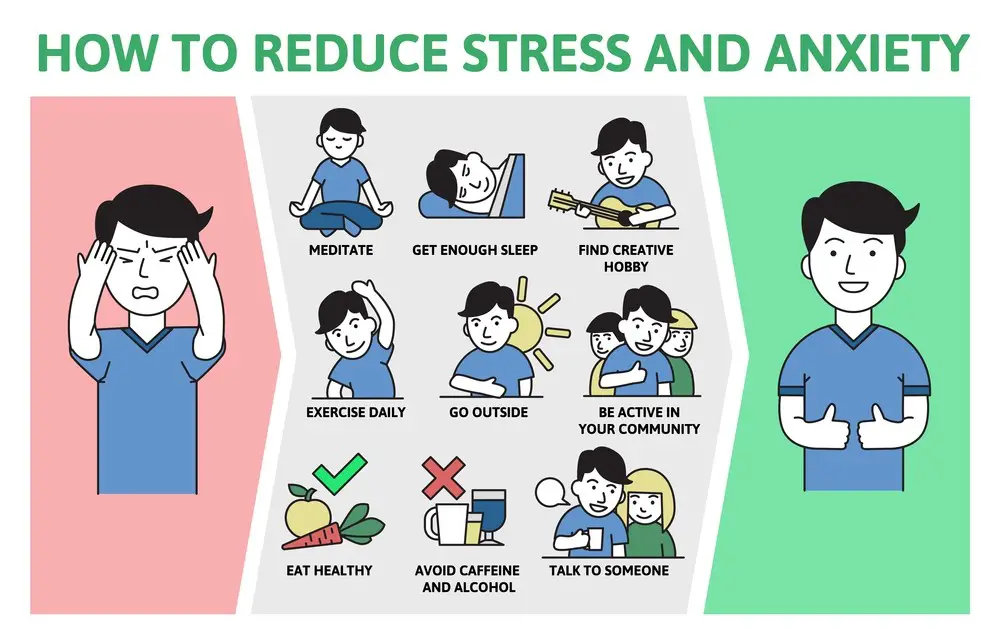 Anxiety and stress are like unwanted guests that can disrupt your sleep. If you’ve had a rough day or are worried about tomorrow, those thoughts will likely chase you to bed. Here’s what happens:
Anxiety and stress are like unwanted guests that can disrupt your sleep. If you’ve had a rough day or are worried about tomorrow, those thoughts will likely chase you to bed. Here’s what happens:
- Anxiety: It keeps your mind engaged, forcing it into overdrive when it should be winding down. You might experience a racing heart or even panic attacks, which make it challenging to get restful sleep.
- Stress: It triggers a flood of hormones like cortisol that prepare your body for fight or flight—not precisely ideal for a peaceful night’s rest.
Tip: Try relaxation techniques before bed, like deep breathing or meditation, to calm your anxious mind.
Mental Health and Equilibrium
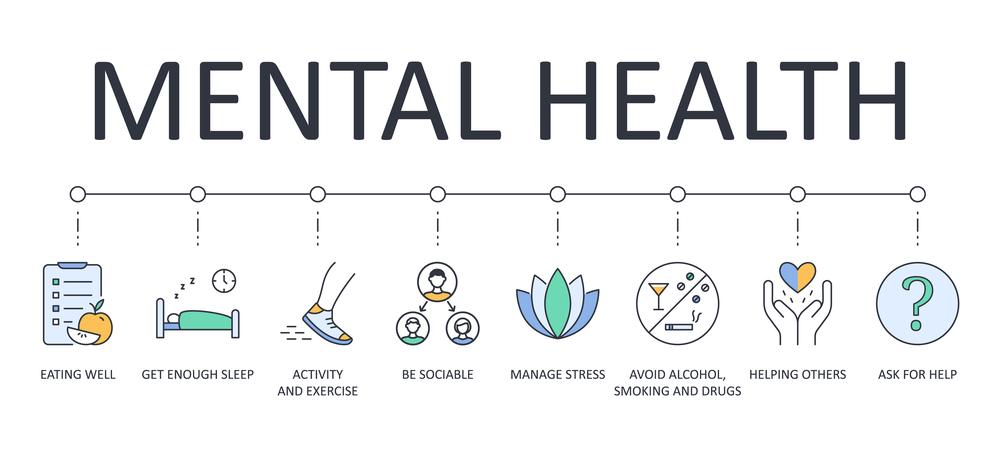 Your mental health and sense of equilibrium go hand-in-hand. Disruptions in either can create a cascading effect:
Your mental health and sense of equilibrium go hand-in-hand. Disruptions in either can create a cascading effect:
- Anxiety disorders: Constant anxiety can throw off your body’s balance, not just mentally but physically too, leading to symptoms like lightheadedness.
- Depression: It often carries sleep troubles in its wake, whether it’s sleeping too much or not enough. Both extremes can leave you feeling off-kilter and light-headed.
Strategy: If you’re struggling with anxiety disorders or depression, seeking professional help can not only improve your mental health but also your sleep quality and physical well-being.
Key Takeaway: Your psychological state can significantly affect how well you sleep and, by extension, how light-headed you may feel during the day. Managing stress and mental health can help restore your balance, so look for strategies that work for you to tackle these challenges head-on.
Preventing Recurrence
To fend off feelings of light-headedness due to lack of sleep, proactive steps and consistent lifestyle choices are your best bet. Let’s look at how you can change to keep these unsettling symptoms at bay.
Proactive Measures
Getting Regular Sleep: Your body loves routine. You can significantly improve your sleep quality by setting a sleep schedule and sticking to it, even on weekends.
- Go to bed at the same time every night
- Wake up at the same time each morning
Mindfulness and Relaxation Techniques: These practices can significantly aid in stress reduction. Consider these options:
- Meditation before bed
- Deep breathing exercises
Sleep Environment: A comfortable, sleep-friendly environment is crucial. Here’s how you can optimize yours:
- Ensuring your bedroom is dark and cool
- Investing in a comfortable mattress and pillows
Key Takeaway: Craft a sleep sanctuary and wind down with relaxation practices for better sleep management.
Sustainable Lifestyle Choices
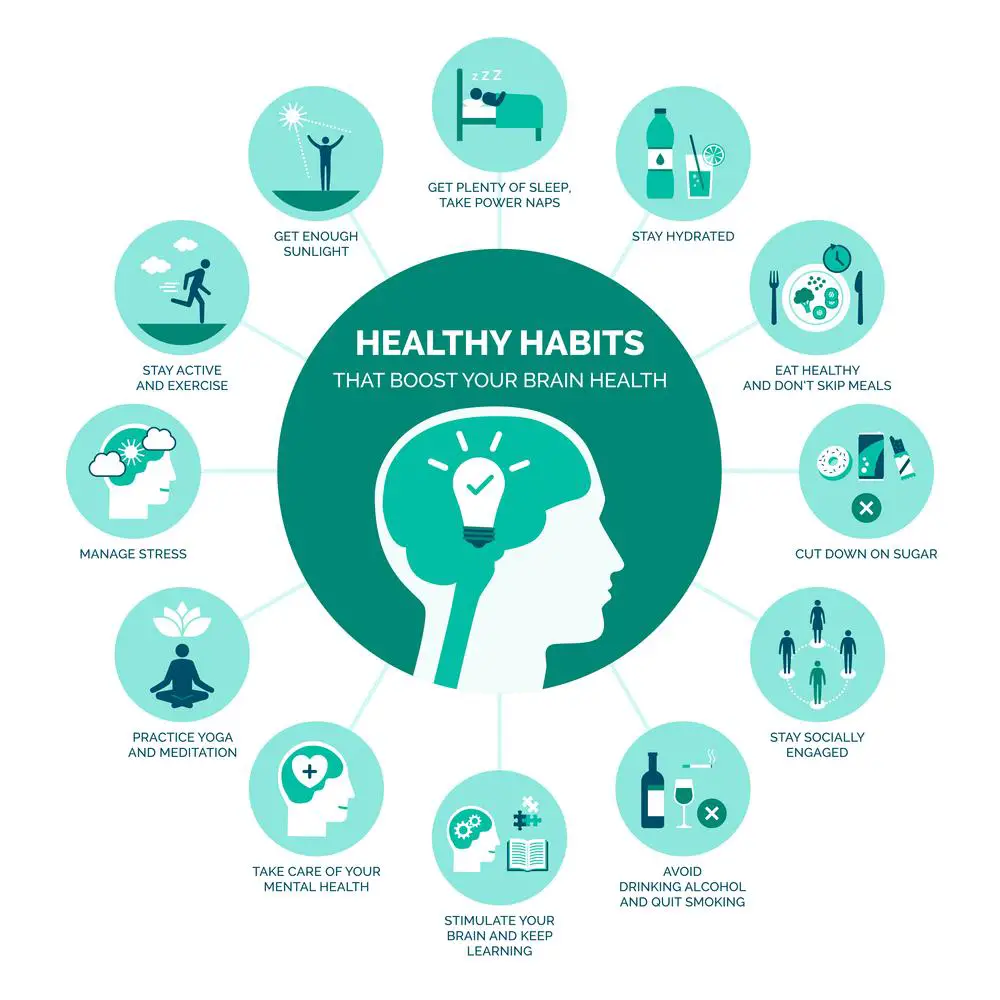 Balanced Diet: What you eat impacts your sleep. Aim for a balanced, nutrient-rich diet, and be mindful of your meal timings.
Balanced Diet: What you eat impacts your sleep. Aim for a balanced, nutrient-rich diet, and be mindful of your meal timings.
- Eat plenty of fruits, vegetables, lean proteins, and whole grains
- Avoid heavy meals close to bedtime
Hydration: Staying hydrated is vital, but timing is everything. Here’s how to prevent dehydration without disrupting your sleep:
- Drink plenty of water throughout the day
- Limit fluids 1 to 2 hours before bed to minimize nighttime awakenings
Regular Exercise: Physical activity can significantly enhance your sleep quality. However, timing is essential.
- Engage in regular exercise in the morning or afternoon
- Avoid vigorous workouts close to bedtime
Key Takeaway: A balanced diet, adequate hydration, and regular exercise are pivotal in preventing recurrent sleep issues.
Frequently Asked Questions
 Navigating through a haze of weariness? These answers illuminate why inadequate sleep may leave you feeling unsteady and offer practical advice to steady your sails.
Navigating through a haze of weariness? These answers illuminate why inadequate sleep may leave you feeling unsteady and offer practical advice to steady your sails.
How can I prevent dizziness due to insufficient sleep?
Make sleep a non-negotiable priority to stave off dizziness caused by a lack of shut-eye. Aim for 7-9 hours each night and establish a consistent routine. Also, consider evaluating your sleep environment and habits to ensure you’re setting the stage for quality rest.
Key takeaway: Prioritize sleep and create an environment conducive to rest.
What are the reasons for feeling off-balance when sleep-deprived?
Skimping on sleep disrupts your body’s balance and coordination functions. Your brain and inner ear work in tandem to maintain equilibrium, and when you’re tired, this system doesn’t work as smoothly, leading to an off-balance feeling.
Key takeaway: Sleep deprivation can disrupt the body’s balance mechanism.
Could there be a link between anxiety, lack of sleep, and dizziness?
Absolutely. Anxiety can heighten your body’s stress response, and when combined with insufficient sleep, may exacerbate feelings of dizziness. It’s like a loop where anxiety affects sleep, and the resulting tiredness feeds back into more anxiety.
Key takeaway: Breaking the cycle between anxiety and poor sleep may reduce dizziness.
Does a deficiency in sleep also cause nausea along with dizziness?
Yes, a lack of sleep can sometimes bring about nausea. This is due to your brain and digestive system being closely linked. When one is off-kilter, it can upset the other, leading to stomach discomfort.
Key takeaway: Balancing your sleep can help settle your head and stomach.
Is it common to experience vertigo when deprived of adequate sleep?
While it’s not as common as general lightheadedness, lack of sleep can trigger episodes of vertigo in some people. The body needs sleep to recover and maintain its internal balance; you might feel spinning without it.
Key takeaway: Restful sleep is essential to prevent disorienting vertigo episodes.
What are some immediate remedies for lightheadedness?
Here are a few quick fixes if you find yourself caught in a dizzy spell:
- Sit or lie down immediately to prevent falls.
- Hydrate with water to boost circulation.
- Take deep, steady breaths to increase oxygen flow to your brain.
- Snack on a light, nutritious bite to stabilize your blood sugar levels.
Key takeaway: Simple actions can provide instant relief when dizziness strikes.
- Stress Management: What is the Relationship Between Stress and Addiction? - June 28, 2024
- Exploring Techniques to Maintain a Healthy Lifestyle without Drugs - May 28, 2024
- How Acupuncture Helps Treat Chronic Fatigue Syndrome - May 28, 2024
This site contains affiliate links to products. We will receive a commission for purchases made through these links.

